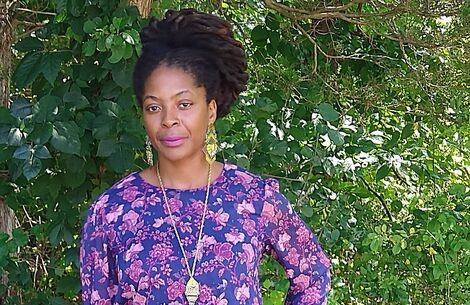
The hope is that by making these connections, undergraduates, who may otherwise have no one to help guide them, learn how to successfully prepare for careers in the field.
As a first-generation student, Johanne Barthold, ’25, didn’t have the same roadmap as some of her peers when it came to navigating college.
“I never had any examples from anyone who went through this process before,” she said.
Johanne (in featured photo) initially started college in her 20’s but struggled and dropped out.
“I was going through my own trials and tribulations and just left school. I didn’t really know who to reach out to. I didn’t know I had support. I kind of regret that,” Johanne said. “I just didn’t have anyone to encourage me to keep going.”
Still, she had a desire to work in the mental health field and become a therapist. A little older and wiser, she decided to enroll at Bridgewater State University and opted to study psychology with a minor in sociology.
This time around, she’s found a supportive environment, as well as an opportunity to participate in the Mentor, Empower, and Network to Optimize Representation (MENTOR) program, a partnership between BSU and McLean Hospital, a leader in behavioral and mental health care, an affiliated teaching hospital of Harvard Medical School, and the flagship psychiatric hospital of the Mass General Brigham integrated health care system. McLean Hospital is located in Belmont.
BSU Psychology Lab and Internship Coordinator Fran Barth is the lead manager of the program that first launched in 2022.
“The purpose of the program is to improve representation in the mental health fields (clinical work, research, and administration) by offering connections between underrepresented students and professionals in the field,” Barth said.
With so many Bridgewater students being “first-gen,” the fear is they many lack a network in their chosen field to tap into. Barth added, “This program allows them to network in the field to learn more about various careers and opportunities and prepare for next steps (e.g., internships, jobs, and graduate school applications).”
Though the program does not include the mentee working on specific research, the contacts made are invaluable.
“The program allows students to network and have contacts and connections at the top psychiatric hospital in the world,” Barth said.
For Johanne, meeting with her McLean mentor has been a positive experience. Especially, for example, when applying to graduate schools, she was disappointed to learn she had been waitlisted at her top choice.
“I was emotional, and she [mentor] was comforting. She helped me problem-solve instead of staying in my emotions,” she said. “(My mentor) is really good with reaching out to me on a regular basis, checking in, answering any questions I might have.
Also enrolled in the program is psychology major Onyinyechukwuka Ashiedu, ’26. Having access to working professionals has boosted her confidence.
“Having someone that you can ask questions of, someone with knowledge in the field, people who know what they are talking about, puts me at ease,” she said. “It’s great having someone who has your best interest at heart, who is setting you up for success. It’s a really good program for BSU to offer.”
Anthony Ferraz, ’27, is also enrolled in the MENTOR program and wants to become a therapist, specifically working in impoverished communities.
His mentor has helped him better define a way to achieve this.
“My mentor gave me advice that helped me broaden my horizons,” he said. “I had a linear path but being able to talk to a (working professional) allowed me to explore more. I took different classes, got into research labs…my mentor has really helped me figure out exactly what I want to do.”
In September, the MENTOR program application process will begin. Emails will be sent out to all BSU psychology students.
“This is a great opportunity for anyone interested in research, clinical work, and possibly a PhD,” Barth said. “Anyone also interested in psychiatric nursing or working in a psychiatric hospital should apply. The hope is that by making these connections, undergraduates, who may otherwise have no one to help guide them, learn how to successfully prepare for careers in the field.”
Do you have a BSU story you'd like to share? Email stories@bridgew.edu